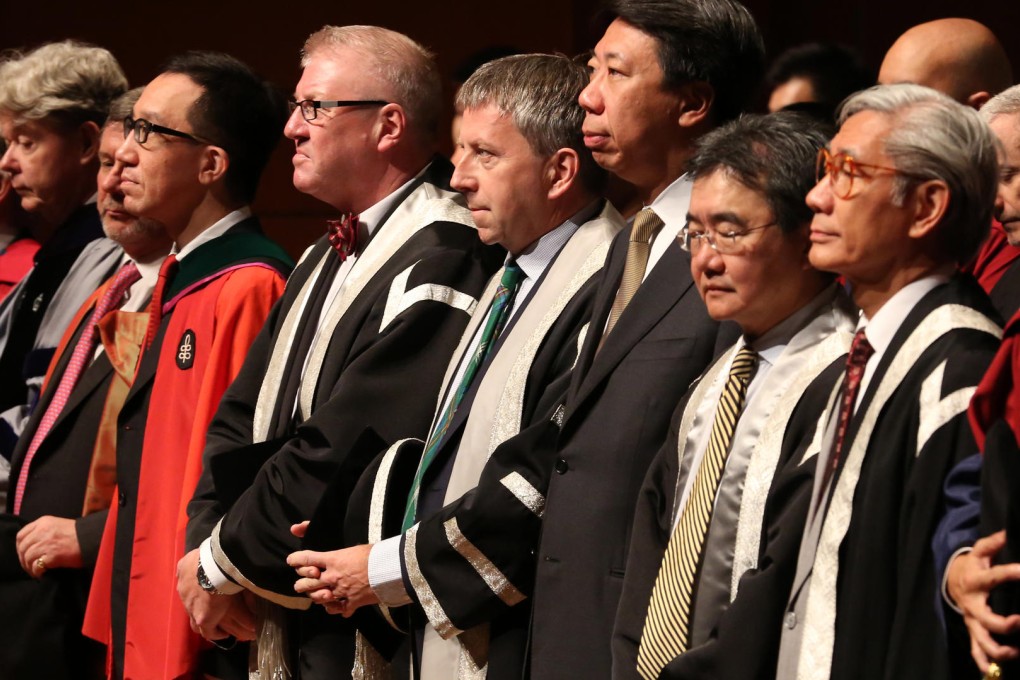Delay in HKU appointment of Johannes Chan makes a mockery of Beijing's pledged support for rule of law
Jerome A. Cohen and Alvin Cheung say the protracted delay in the appointment of an outspoken HKU law professor reflects worrying interference in academic freedom

It is dismaying to learn of the pressures now faced by Hong Kong academics who are perceived to be critical of certain Chinese central government policies. Recent developments at the University of Hong Kong have been particularly disturbing.
The controversy over the appointment of former dean of the Faculty of Law, Professor Johannes Chan Man-mun, as pro-vice-chancellor for academic staffing and resources, is a visible litmus test of the preservation of academic freedom. Despite an independent search committee's recommendation that Chan be appointed, the HKU council, the university's governing body, has repeatedly delayed its decision, citing the need to await the appointment of a provost and deputy vice-chancellor. However, no such concerns were cited in the previous filling of two other vacancies for pro-vice-chancellors - who also report to the deputy vice-chancellor. Nor has the council cited any credible reasons for not appointing Chan.
READ MORE: Smears from both sides have politicised University of Hong Kong’s campus, says Baptist University chief
The council's refusal to follow long-established appointment procedures has raised fears that the university's autonomy is being compromised. It is particularly worrying that the council has delayed the appointment of Chan against the view of the vice-chancellor, Professor Peter Mathieson, who warned that further postponement can only bring adverse consequences to the effective management of the university.
Institutional autonomy and academic freedom in Hong Kong are guaranteed, both under the Basic Law and the Joint Declaration that spawned it
It is particularly sad to learn of the unwarranted pillorying that Chan has received from the Beijing-controlled national media. Locally, the personal attacks launched by the pro-Beijing Wen Wei Po and Ta Kung Pao against Chan in some 350-odd articles since November last year amount to a concerted smear campaign.
Chan is an internationally renowned legal scholar and administrator who champions the fundamental values of human rights and the rule of law. Under his leadership, the Faculty of Law introduced legal education exchange programmes to train Chinese judges, government officials and legal scholars. He also welcomed important Chinese legal experts and promising young academics to cooperate with the likes of himself, professors Albert Chen Hung-yee and Fu Hualing, and other luminaries. Chan's contributions are reflected in his status as the first - and so far only - honorary senior counsel of the Hong Kong Bar.
